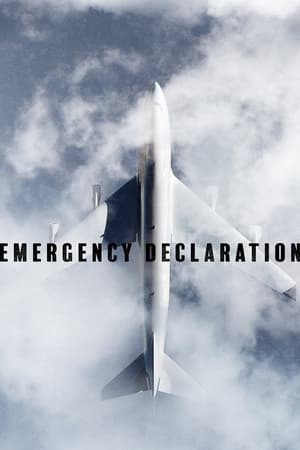
One of the goofier box-office sensations of the ’70s saw Airport, Universal Pictures’ soapy adaptation of Arthur Hailey’s best-selling novel, unexpectedly kick off a decade-long franchise (and usher in a general vogue for big-budget disaster movies featuring all-star casts; The Towering Inferno, like Airport, was even Oscar-nominated for Best Picture). As often happens with sequels, these became increasingly ludicrous over time, constantly seeking to up the ante on both danger and melodrama; by the third film, Airport ’77, Universal had trapped a passenger jet underwater in the middle of the Bermuda Triangle. For all that Airplane! used 1957’s long-forgotten Zero Hour! as its template, ZAZ were really poking just as much fun at the Airport movies (Airport 1975 in particular), and the parody’s enormous success—it grossed $83 million in 1980, equivalent to $284 million today—almost certainly reflected audiences’ recognition of how flat-out silly the whole in-flight nightmare mini-genre had become.
Technically, the South Korean action-thriller Emergency Declaration is neither a sequel nor a remake, having been written from scratch by its director, Han Jae-rim. But it plays like roughly the sixth movie in a truly exhausted franchise, panicked that viewers might grow bored if something intense isn’t happening at every moment and across every level of its overcrowded narrative. Most of the fervor feels superfluous, given a solid basic premise that more or less cranks Zero Hour!/Airplane’s up to 11: Rather than putting the plane in jeopardy by having pilots and passengers succumb to something as mundane as food poisoning, Han has a disgruntled former biotech dude, Jin-seok (Yim Si-wan), smuggle a deadly virus onboard, sewn into one of his armpits. It’s unclear why the villain chooses to perform this gnarly operation in a public restroom, where he can be observed, rather than in the privacy of his apartment—merely the first of many lapses in plausibility to come. Still, the film’s prolonged, leisurely setup nicely builds tension, observing this smug villain as he makes highly suspicious inquiries about which flight is carrying the most passengers and crosses paths, in said restroom, with the pre-adolescent daughter (Kim Bo-min) of our apparent ordinary-guy hero, Jae-hyuk (Lee Byung-hun, who’s starred in many of Kim Jee-woon’s films—A Bittersweet Life; The Good, the Bad, the Weird; I Saw the Devil—but is now probably best known in the U.S. for his recurring role in Squid Game). That the little girl uses the men’s room due to a ridiculously long line at the ladies’ will be the last welcome touch of verisimilitude we ever see.
Anyway, Jin-seok decides to take the same flight to Honolulu as Jae-hyuk and his daughter, and quickly releases the virus in the plane’s tiny restroom, where it infects and grotesquely kills the first poor guy who has to take a dump. Han reportedly conceived the idea for Emergency Declaration pre-pandemic, but there’s no getting past the particularity of this horror now, and the weaponized virus itself quickly usurps Jin-seok’s role as antagonist. My main question, early on, was how on earth we wouldn’t just end up with a planeful of corpses crashing into the ocean, given how lethal and contagious this weaponized virus appears to be. Turns out it behaves much like Covid: killing some people, making others severely ill, barely affecting many. All of the pilots either die or become incapacitated, however, thereby enabling the familiar scenario in which one of the civilian passengers—Jae-hyuk, as it happens—has to fly and land the plane. It’s a bit of a fortunate coincidence that he happens to be a former airline pilot (now deathly afraid of flying), but that’s standard disaster-movie hokum, perfectly acceptable. And Han does right by the initial dead-pilot setpiece, sending the plane into a rolling nosedive that has idiots who aren’t wearing their seatbelts bouncing around the cabin like socks in a tumble dryer. That happens about midway through this tight 95-minute nailbiter.
Oops, sorry, my mistake. Emergency Declaration is in fact two hours and 21 freakin’ minutes long, and it hasn’t even begun to spew nonsense. Jae-hyuk overcoming his fear and taking the controls apparently didn’t seem sufficiently gripping to Han, so he introduces an additional trauma to overcome: Coincidentally, one of the co-pilots (Kim Nam-gil) had previously flown alongside Jae-hyuk, and blames him for the death of his wife (a flight attendant) in an accident that happened years earlier; this involved a split-second decision that ignored directives from air traffic control, and Jae-hyuk inevitably winds up in a similar situation here. In another coincidence, the detective who’s investigating Jin-seok on the ground—he’d uploaded a video about his impending attack—learns that his wife (Woo Mi-hwa) is a passenger on the flight in question. This detective is played by the great Song Kang-ho, star of Parasite and roughly a third of the other 21st-century South Korean films that American cinephiles are likely to be familiar with, and the way that Emergency Declaration squanders his shambling charisma eventually turned me fully against it. His character spends most of the movie worrying about his wife, struggling to hide how much he’s worrying about his wife, and yelling at uncooperative employees of the biotech firm from which Jin-seok acquired the virus; every time we cut back to him, any urgency dissipates, and even his heroic action in the home stretch is so fundamentally passive that it hardly required an actor of Bong’s stature. The same is true of Jeon Do-yeon (Secret Sunshine, The Housemaid), stuck in a bland government-official role.
The final straw for me, though, was Han’s truly absurd deployment of the titular declaration, which—according to expository opening text, at least—amounts to aviation’s version of declaring martial law. When a pilot declares an emergency, we’re told, nothing else matters; every other aspect of protocol is superseded, and the only goal for all involved is to land the aircraft safely. Sounds reasonable. Is an emergency declared, in Emergency Declaration, when it’s discovered that someone smuggled a lethal weaponized virus onto the plane and released it into the constantly recirculating air? It is not. Well, is an emergency declared when some 40 passengers proceed to drop dead? Negative. Is an emergency declared when one of the pilots drops dead? Don’t be an alarmist. Is an emergency declared when the other pilot becomes so ill that he can no longer handle the controls? Not to worry, there’s a retired aerophobic pilot on board. Okay, is an emergency declared when the plane miraculously reaches Hawaii and the U.S. government refuses to let it land? Still not an emergency yet. How about when Japanese fighter planes start firing warning shots at the commercial airliner, because the Japanese government doesn’t want to risk exposure, either? Wait, how are we anywhere near Japan? Weren’t we just over Hawaii? Jae-hyuk finally breaks out the E-word because he’s running out of fuel—which I can believe, because the plane has at this point flown 4,700 miles (nine hours) from South Korea to Hawaii and then, without refueling, turned around and flown all the way back. Han attempts to cover this with dialogue about the plane having taken on extra fuel in case of bad weather, but that’s just not how commercial aviation works—fuel is money (not to mention weight), and reserves are carefully calculated without any expectation of a possible nine-hour diversion halfway across the planet. That’s the point at which I made a declaration of my own: This movie is stupid.
One of the first notable online film critics, having launched his site The Man Who Viewed Too Much in 1995, Mike D’Angelo has also written professionally for Entertainment Weekly, Time Out New York, The Village Voice, Esquire, Las Vegas Weekly, and The A.V. Club, among other publications. He’s been a member of the New York Film Critics Circle and currently blathers opinions almost daily on Patreon.






